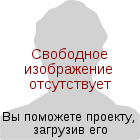- Nobukatsu Fujioka
-
Nobukatsu Fujioka (藤岡 信勝 Fujioka Nobukatsu) (born October 21, 1943 in Shibecha, Hokkaido) is a professor of education at Tokyo University noted for his efforts at removing from Japanese textbooks accounts of wartime atrocities committed by Japan during the Second World War. He is considered to be a conservative and a nationalist, and has been quoted as saying that he "stand(s) for a viewpoint of history with an emphasis on national interest," [1] and that the study of Japanese history is "subject to the ultimate moral imperative of whether or not it serves to inculcate a sense of pride in being Japanese."[2] He has also said that to "write [a history] based only on verified historical truths makes...[it] insipid and dry. I had no choice but to write from my own imagination to a great extent."[3]
In the early 1990s, Fujioka founded the so-called Liberal View of History Study Group, which advocated "correcting history" by promoting a "positive view" of Japanese history, and removing all references to what he referred to as "dark history." By 1995, he had created the Association for Advancement of Unbiased View of History (Jiyuu-Shugi-Shikan Kenkyuu-Kai)[4][5] and the Committee to Write New History Textbooks. Among Japan's top ten bestsellers in 1997 were two volumes edited by Fujioka, History The Textbooks Do Not Teach and Shameful Modern History.
By early 2000, Fujioka and his followers had joined with others to form the Japanese Society for History Textbook Reform (Tsukurukai, now headed by Nishio Kanji). This group authored The New History Textbook, which was one of eight junior high school history textbooks authorized by the Ministry of Education in April 2001. In December 2000, a draft textbook circulated by the Society and shown on national television elicited criticism by many Japanese historians and teachers.
Fujioka's textbook revisionist movement has created considerable controversy in China (especially concerning denial of the Rape of Nanking), and South Korea and the Philippines (especially concerning denial of Japanese responsibility for the so-called "comfort women").
He is an assenter of "The Truth about Nanjing."
External links
- Examining the Japanese History Textbook Controversies; Kathleen Woods Masalski National Clearinghouse for U.S.-Japan Studies; East Asian Studies Center; Indiana University
- The Textbook Controversy; Charles Cummins Washington University webpage
- 'Let's Stop Apologizing' A professor's battles outside the classroom Asiaweek magazine article
- The Politics of Amnesia: Reconstructing the Asia-Pacific War; Takeo Hymans Japan Watch article
- The 'Comfort Women' Controversy: History and Testimony; Nozaki Yoshiko Z Magazine article
- Asia battles over war history: The legacy of the Pacific War looms over Tokyo's plans for the future; David McNeill and Mark Selden
Categories:- 1943 births
- Living people
- People from Hokkaidō
- Hokkaido University alumni
- University of Tokyo faculty
- Japanese critics
- Japanese history textbook controversies
- Japanese anti-communists
- China–Japan relations
- Nanking Massacre deniers
- Japanese educationists
Wikimedia Foundation. 2010.

